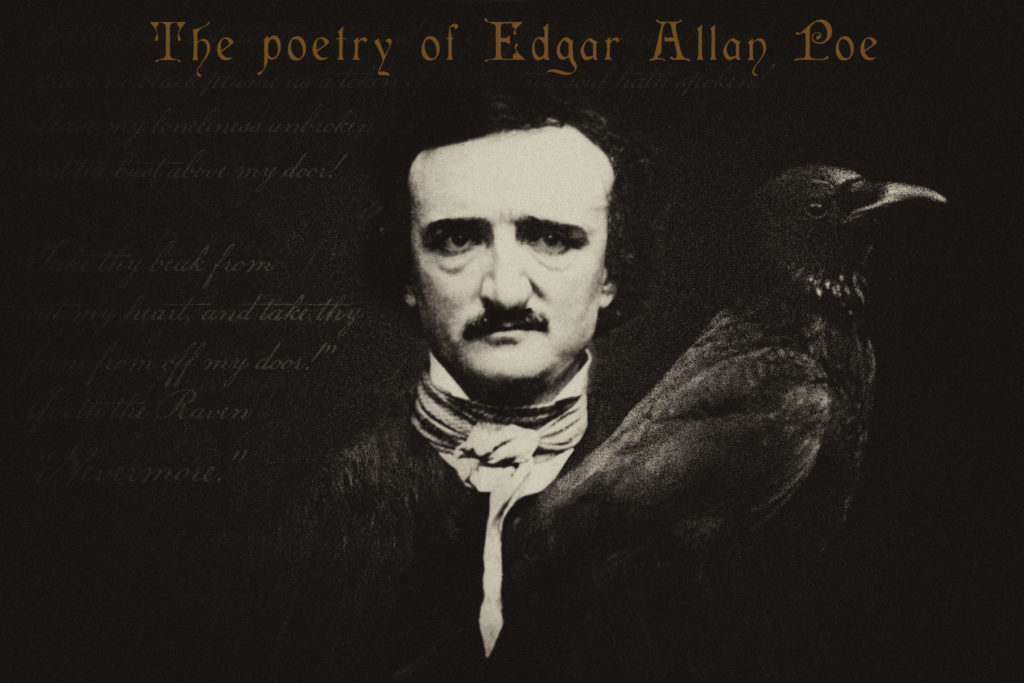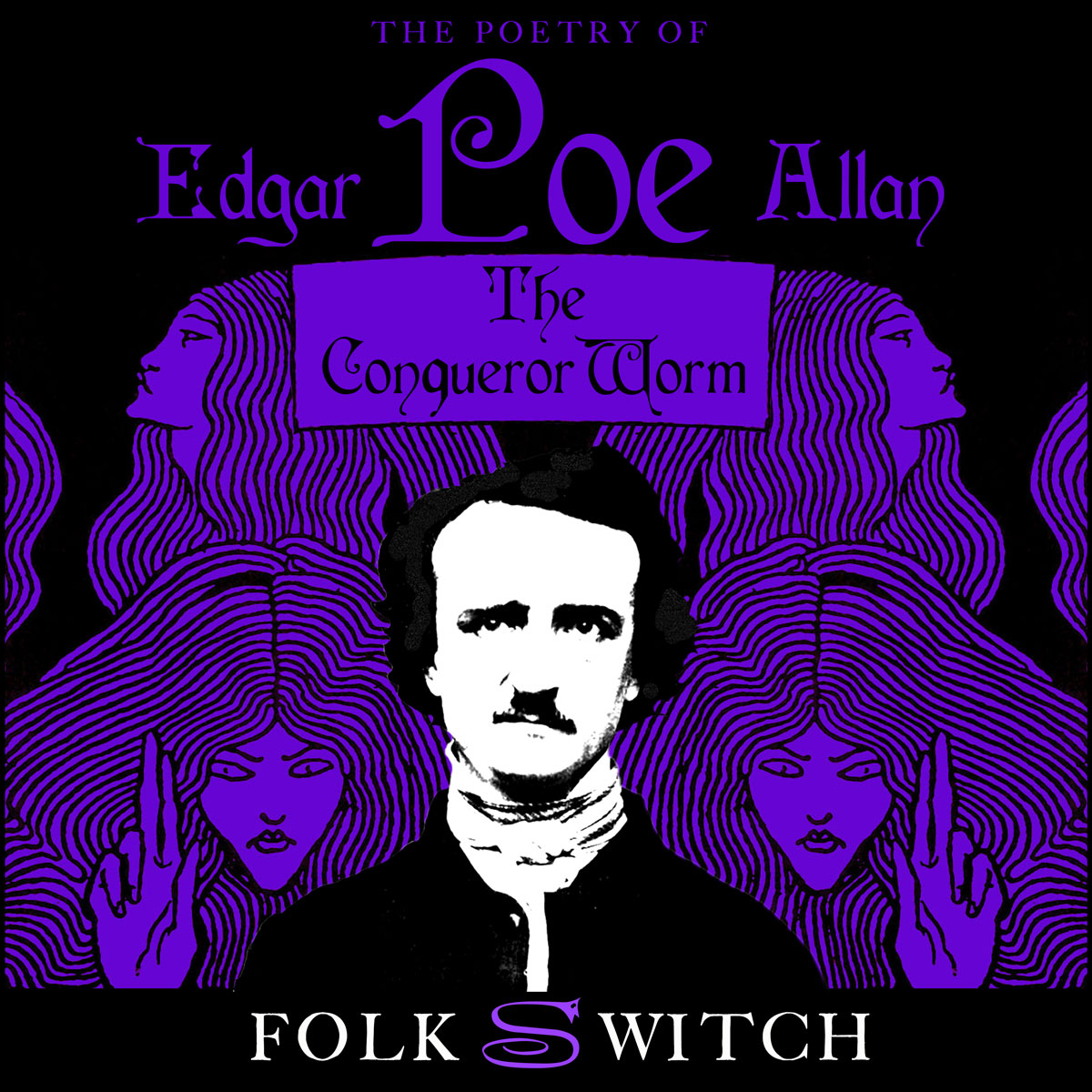The Conqueror Work brings Poe’s poems together with acid rock, traces of heavy metals, European cabaret music and and a feel of the theatrical, to give his emotional discourses new settings for a new age.
Poe’s life was scarred by loss, his father to abandonment, his mother to death – an event which seemed to overtake many of the women who were instrumental Poe’s life. Poe’s poetry reflects that loss, from the obvious paean to the departed, Spirits of the Dead, to his last poem, Annabel Lee, where heroine succumbs to illness and her love continues to visit and lie with her nightly, in the grave.
Poe’s poetry explore unflinchingly death, as in the Conqueror Worm the key lines which close out the poem read “That the play is the tragedy, ‘Man’ And its hero, the Conqueror Worm.” Even Poe’s idea of angels, usually thought of as bringing relief and hope, in his poetry only affirm the futility of it all. In Annabel Lee, they conspire with demons to keep the lovers apart.
There is no bright spot in this collection of Poe’s poetry. The music which accompanies veers from intense, pounding drums and overdriven guitars, washes of feedback stain the palette upon which the author’s words rest, to the gentle strains of the broken hearted. It’s amazing how easily Poe’s poetry can be sung, as though the author hummed along as he penned the stanzas. Phrases such as “Doubting, dreaming dreams no mortals ever dared to dream before” roll lightly off the tongue, while others long to be screamed in anguish, “Take thy beak from out my heart, and take thy form from off my door!’ Quoth the Raven, ‘Nevermore.’”
A Dream Within A Dream finds Poe exploring the structure of life, reality and the loss of all you know and care about it. In the end Poe believed we lost all, because that was his experience and it inundates Poe’s poetry. The City In The Sea is an apocalyptic vision – a glorious city ruled over by the figure of Death, who is only preparing the way for the return of Satan and the unleashing of Hell on earth. In Poe’s poetry, that glorious city, as well as all things of beauty in the end succumb to the conqueror worm.
There are many version of The Raven out there in musical form, but seldom is there a conscious attempt to actually sing the damn thing. Lou Reed even settled for narration over the top of Metal Machine type music, rather than find the rhythm of Poe’s poetry. Here Folkswitch keeps the words intact, presenting the poem much as a high school musical drama performance, breaking it into sections to follow the story arc, from the longing for lost Lenore, to the appearance of the raven, to the narrator’s descent into madness.
Poe’s poetry, like his more famous tales explore madness, as Poe explored it in real life, the inevitable result of a life of hardship and loss. It can be argued that madness is the proper response to the human condition. This collection of poems and music takes that exploration further and brings it into the modern age, while trying to keep touch with its nineteenth century roots.
It was a time and a place where death was always a heartbeat away, the world was growing more dangerous and after Poe’s death, the wholesale slaughter of great swatches of the human race began in earnest. Perhaps Poe saw the future and gave us a blueprint for dealing with inevitable loss, death and pain. His words still echo down to us today.
The videos of Poe’s Poetry
Each interpretation of Poe’s Poetry on The Conqueror Worm has been given a visual treatment, resulting in nine stand alone videos as well as one extended length, 60 minute compilation. Dark and menacing, the videos draw from the German Expressionists as well as more modern artists who have explored the dark side through music and video. Not a horror film per se, the treatment of Poe’s poetry does result in a feeling of unease, and we humbly submit brings the music, and the lyrics a new perspective.
All the videos can be found on this site, as well as the Folkswitch YouTube channel.

The Conqueror Worm
To One In Paradise
A Dream Within A Dream
Annabel Lee
Interlude: The Hearse Song (The Worms Crawl In The Worms Crawl Out)
Deep In Earth (My Love Is Lying)
Spirits Of The Dead
City In The Sea
The Raven
Personnel:
Teelin Atteberry: Drums, Percussion, Violin
Todd Atteberry: Vocals, Guitars, Keyboards, Percussion
Todd Lane: Vocals, Guitar, Keyboards, Percussion

